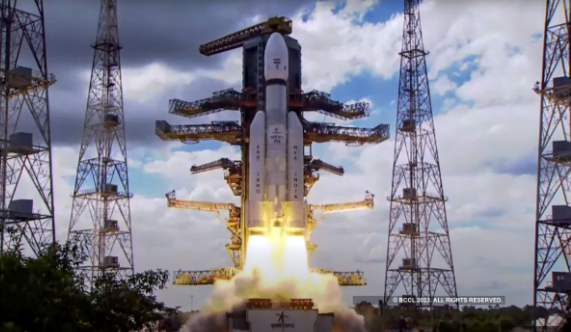How UAE Became Rich: A Journey from Desert to Economic Powerhouse
The world often measures strength in military power, but the United Arab Emirates (UAE) has demonstrated that true power can emerge from strategic economic planning, diplomacy, and innovation. While rich in oil and natural gas reserves, the UAE has gone beyond its natural wealth to establish itself as a global economic hub. The question remains—how UAE became rich and continues to thrive despite challenges?
Table of Contents
UAE’s Unique Position in the Arab World
Unlike many of its neighboring nations, the UAE has successfully balanced modernization with its deep-rooted traditions. The country has created an inclusive environment where people of various religions and nationalities can coexist, making it a preferred destination for expatriates, investors, and global businesses. Its journey to wealth began with the discovery of oil, but its leaders were wise enough to recognize that oil alone would not sustain the nation forever.
Read Also: Why the Middle Class in India is Dying
The Role of Oil in the UAE’s Economic Boom
The discovery of oil in the 1950s and 1960s transformed the UAE’s fortunes. Before oil, the region relied heavily on pearl diving and small-scale trade. However, when oil reserves were tapped, the country quickly capitalized on the newfound wealth. The revenue from oil exports allowed the UAE to invest heavily in infrastructure, education, healthcare, and security.
Oil still contributes significantly to the UAE’s GDP, with the country holding about 6% of the world’s proven oil reserves. However, knowing that fossil fuel reserves are finite, the UAE’s leadership embarked on an aggressive diversification strategy to ensure sustainable economic growth.

Diversification: A Masterstroke in Economic Planning
One of the biggest reasons how UAE became rich is its visionary approach to economic diversification. Recognizing the volatility of oil prices and the eventual decline of fossil fuel dependency, the country strategically expanded into various sectors, including:
Real Estate and Infrastructure: The UAE transformed its cities into futuristic metropolises, with Dubai and Abu Dhabi leading the way. The Burj Khalifa, the world’s tallest building, and Palm Jumeirah, an artificial archipelago, symbolize the UAE’s ambition and innovation.
Tourism: Dubai, in particular, has positioned itself as a global tourism hub, attracting millions of visitors annually. Attractions like luxury resorts, shopping festivals, and cultural landmarks make it a top travel destination.
Aviation and Transport: The UAE’s strategic location between Europe, Asia, and Africa has made it a key transit point for global air travel. Emirates Airlines and Etihad Airways have become major players in the aviation industry, boosting tourism and business travel.
Financial Services: The UAE has established itself as a major financial hub, with Dubai International Financial Centre (DIFC) and Abu Dhabi Global Market (ADGM) attracting global banks and investment firms.
Technology and Renewable Energy: To reduce its reliance on oil, the UAE is investing in renewable energy, artificial intelligence, and space exploration. The country aims to generate 50% of its energy from clean sources by 2050.
Foreign Investments and Business-Friendly Policies
Another crucial factor in how UAE became rich is its ability to attract foreign investment. The country offers tax-free zones, a corruption-free bureaucracy, and business-friendly regulations that make it an attractive destination for multinational corporations. Companies from various industries, including finance, logistics, and technology, have set up regional headquarters in the UAE, further strengthening its economy.
Read Also: A Solution to Inflation and Economic Crisis
UAE’s Role in Global Diplomacy
Beyond its economic prowess, the UAE has made strategic moves in global diplomacy. The country plays a crucial role in international negotiations and peace talks. For instance, in 2018, Abu Dhabi hosted negotiations between the U.S. and the Taliban. Similarly, discussions during the Israel-Hamas war and prisoner exchanges between Russia and Ukraine took place in the UAE.
The country’s diplomatic influence extends beyond the Middle East. It maintains strong ties with global superpowers like the U.S., China, Russia, and India. The UAE’s ability to navigate complex geopolitical situations while maintaining neutrality has earned it the reputation of being a key player in international affairs.
Population and Workforce: The Engine Behind Economic Growth
UAE has a small native population, with only about 1.1 million Emirati citizens out of a total population of 9.3 million. To sustain economic growth, the country has welcomed millions of migrant workers from India, Pakistan, Bangladesh, and other countries. These workers have played a crucial role in building the infrastructure and providing labor for various industries
Read Also: 90-Hour Workweek Debate
Between 2003 and the 2010s, the UAE’s workforce grew by 325%, enabling the rapid expansion of its economy. This diverse labor force is one of the main reasons how UAE became rich despite its challenging geographic and climatic conditions.

Military and Security: Ensuring Stability in a Volatile Region
Security is a crucial aspect of economic success. Given its strategic location in the Middle East, the UAE has invested heavily in modernizing its military. It has a well-equipped defense force and collaborates with key allies like the U.S. and Saudi Arabia to maintain regional stability.
The country also actively counteracts threats from groups like the Muslim Brotherhood and intervenes in regional conflicts to protect its interests. Its strong security policies ensure that foreign investors and businesses feel safe operating in the UAE, further boosting economic growth.
Future Challenges and the Road Ahead
Despite its impressive success, the UAE faces several challenges:
Climate Change: The country has an arid climate with limited freshwater resources. Addressing water scarcity and ensuring sustainable development will be critical.
Global Economic Shifts: The rise of new economic powers and geopolitical tensions could impact the UAE’s trade and investment flows.
Balancing Global Alliances: The UAE maintains strong ties with both Western and Eastern superpowers, but shifting global dynamics may force it to choose between key allies in the future.

Conclusion: A Nation Poised for Continued Success
The story of how UAE became rich is a testament to visionary leadership, strategic economic planning, and global diplomacy. From a desert land with minimal resources to a thriving economic powerhouse, the UAE has defied all odds. By continuing to invest in innovation, sustainability, and foreign relations, the UAE is well-positioned to maintain its dominance in the global economy for decades to come.
What do you think about the UAE’s rise to power? Share your thoughts in the comments below!
So, I believe I’ve given you all the information. I hope you gain some information’s. If you did, don’t forget to like and share it. Stay tuned to our webpage for regular updates and insights.
Experience the power, feel the comfort, and embrace the evolution for the most recent Tech, Finance news and reviews, Health tips and many more follow themdakbar Blogs. See you in the next article. Until then, goodbye!
FAQs:
Que: How did the UAE become successful?
Ans:
By constructing top-notch infrastructure, medical facilities, and educational institutions, the United Arab Emirates invested its oil wealth in its citizens. Since the outset, education has been a top concern for Sheikh Zayed, who saw it as the path to building a successful and inclusive society. Que: Why is the UAE a high income country?Ans:
This is indicative of the UAE’s abundant natural resources, which include the fifth-largest natural gas reserves in the world and 10% of the world’s oil reserves. Oil exports, a vital component of the economy, currently make up almost 30% of the UAE’s overall GDP. Que: Is Abu Dhabi richer than Dubai?Ans:
According to Global SWF’s most recent report, Abu Dhabi currently oversees the largest sovereign wealth fund (SWF) capital in the world, with an incredible $1.7 trillion in assets. Although Abu Dhabi is the preferred location for SWFs, it should be mentioned that, in terms of population, Dubai continues to be the wealthiest city in the region.

